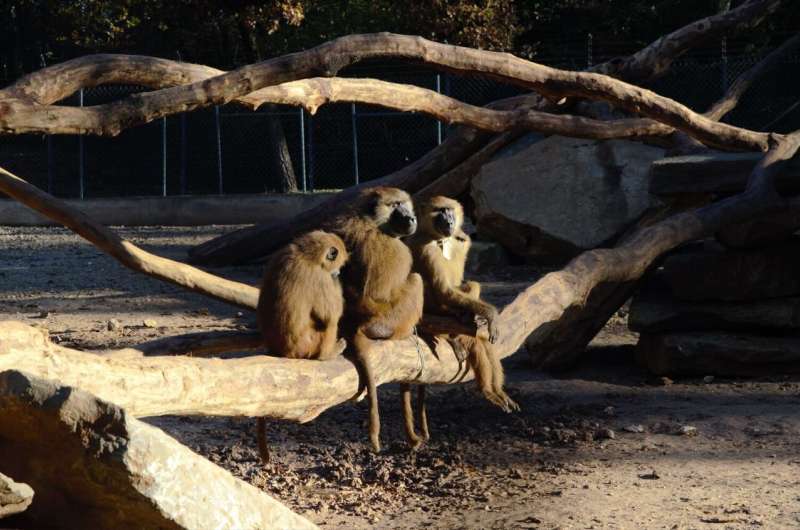This article has been reviewed according to Science X's editorial process and policies. Editors have highlighted the following attributes while ensuring the content's credibility:
fact-checked
peer-reviewed publication
trusted source
proofread
Scratch my back, I'll scratch yours: Baboons wily cooperators

Like humans, baboons are able to cooperate with another of their kind for the common good—or punish them if they don't reciprocate, a study said on Friday.
Scientists have long debated whether animals other than humans are capable of this complicated tit-for-tat interaction known as "strategic cooperation".
For example, imagine a student who helped out an absent schoolmate by lending them their notes from class.
The student might expect that schoolmate to return the favor next time—and if they did not, seek out someone else more willing to play ball.
To find out if baboons—which are particularly sociable monkeys—are capable of this level of sophistication, researchers conducted an experiment at a French primate center.
Eighteen Guinea baboons were paired off and put opposite each other, separated by a transparent partition, so they could watch their partner's behavior.
Each baboon had its own touchscreen, which they were accustomed to from previous research at the center.
One of the baboons was then presented with several images on their touchscreen. Pressing one image would release a tasty treat—a few grains of wheat—just for themselves.
But pressing another image would give both baboons a treat—a decision the partner on the other side of the screen would see.
Ten of the baboons were swiftly sacked because they did not understand the task.
For the remaining eight, the researchers conducted nearly 250,000 tests on random pairings over 95 days.
Punishing the 'selfish'
In almost all of the interactions, the baboons selected "the image that rewarded them both", said Anthony Formaux, an expert in animal psychology and the lead author of the study in the journal Science Advances.
The baboons made the decision out of a "sense of the general interest", Formaux told AFP.
Then the researchers increased the difficulty. The baboons were given two options: one gave a treat to the monkey on the other side of the screen, while the other did nothing.
"No longer able to reward themselves, they watched their partner much more carefully," Formaux said.
Baboons who gave treats to their comrades were more likely to receive some later in return.
But if a baboon made the "selfish" choice of not rewarding its partner, the partner would later punish it, potentially by wondering off to find another monkey at a different screen.
The baboons would only dish out punishment sometimes, "as a little reminder to control the partner in order to strengthen cooperation", Formaux said.
"It was incredible!" he said. "They adapted their strategy according to difficulty and the costs imposed on them."
The researchers suggested that this capacity for strategic cooperation was potentially inherited from a common ancestor of both humans and baboons at least 30 million years ago.
More information: Anthony Formaux et al, Guinea baboons are strategic cooperators, Science Advances (2023). DOI: 10.1126/sciadv.adi5282. www.science.org/doi/10.1126/sciadv.adi5282
Journal information: Science Advances
© 2023 AFP

















